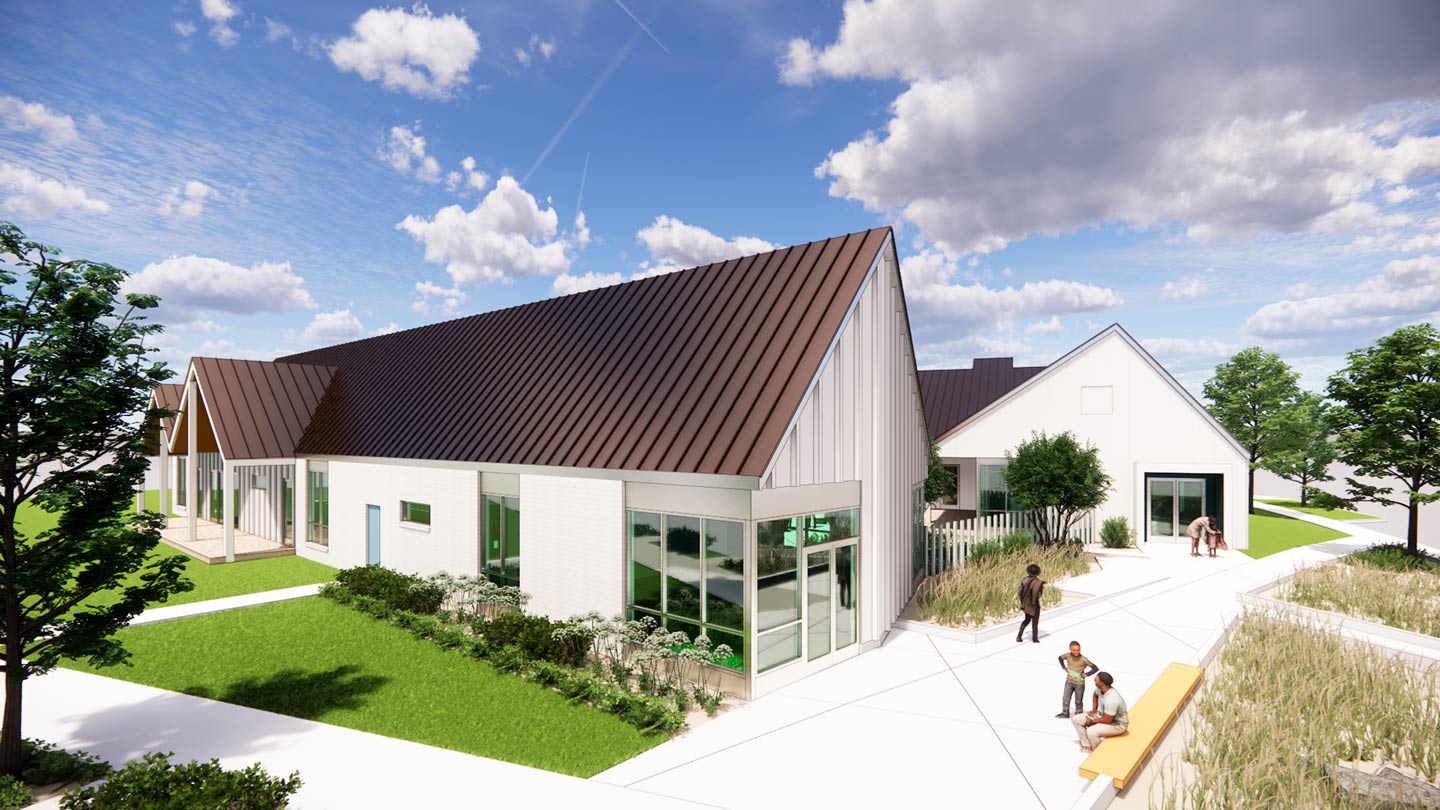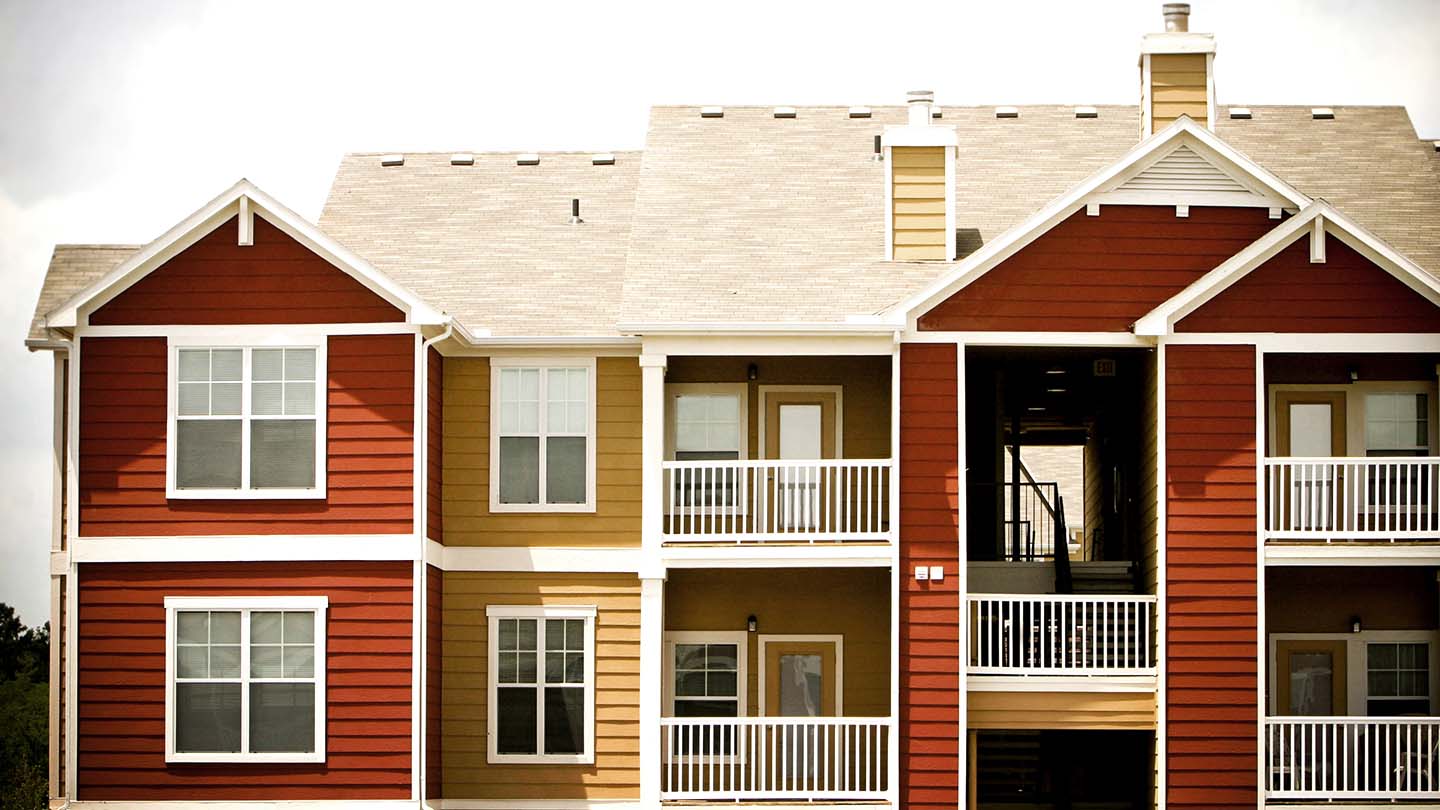
7 min read
Migration to the South is booming. The region added more than 1.4 million residents in 2023, according to the U.S. Census Bureau. Tennessee has been a key driver; the state’s population rose by more than 77,000 in 2023. However, the population growth has impacted Tennessee’s housing market, increasing the need for affordable housing across all income levels.
We spoke to affordable housing developers and experts to learn more about what’s driving people to Tennessee, the state’s top housing challenges and how cities across Tennessee are growing the affordable housing supply.
What’s behind the migration to Tennessee
Tennessee’s affordable housing is a key driver of migration. “Of course, households don’t only want low-cost housing,” said Tom LaSalvia, Head of Commercial Real Estate Economics at Moody’s Analytics CRE. “Available jobs, preferred climate and access to cultural and outdoor amenities are also of great importance and part of the calculus.”
Some of the top reasons for moving to Tennessee include:
Low cost of living
Cost of living is the No. 1 concern for millennials and Gen Z, according to a Deloitte Gen Z and Millennial Survey. Half of respondents admitted living paycheck to paycheck.
Tennessee doesn’t have a state income tax. And generally, it has lower property taxes and a lower cost of living than other states, which has attracted everyone from working aged people to retirees, especially those from more expensive cities and coastal areas. “For someone relocating from New York, Chicago or Los Angeles to Tennessee, the difference in the cost of living could feel like a significant financial gain,” said Shannon Tutor, Regional Property Manager on SOCAYR, Inc.’s Development Team.
Economic growth
Tennessee has seen sizable economic growth in recent years. “The state has attracted corporate headquarters and large office relocations like Oracle, Amazon, Alliance Bernstein and EY, bringing significant jobs and economic growth,” said Evan Holladay, Founder and CEO of Holladay Ventures, a Nashville-based developer specializing in workforce, affordable and mixed-income housing. “The individuals coming to fill these jobs are coming from all over the U.S., and the jobs are a wide range, from blue collar to high-tech to the music industry to healthcare.”
Attractive climate
Because Tennessee is landlocked, it’s shielded from some effects of climate change. The state also offers a temperate climate. “It's a place where you can be outside 12 months of the year,” said James Hatfield, VP of Redevelopment at Knoxville’s Community Development Corporation. “The state also has a great quality of life, with wildlife and nature at our back door.” For example, Knoxville is located at the foothills of the Great Smoky Mountains, and Memphis and Chattanooga are each a short drive away from national forests. Nashville is home to many lakes prime for fishing and boating.
Lack of affordable housing in Tennessee
The population growth has impacted affordable housing in Tennessee. “It’s putting pressure on the market and making it harder to find affordable rental options,” Holladay said.
Like other states, Tennessee doesn’t have enough affordable housing to meet demand across income levels—in particular extremely low-income households making up to 30% Area Median Income (AMI) and Missing Middle households making 80% to 120% AMI.
Tennessee faces affordable housing development challenges including:
- Limited local, state and federal funding
- Zoning that hasn’t kept up with housing demand
- Higher interest rates and increased construction and insurance costs
10-year multifamily growth since year-end 2013 |
||||
|---|---|---|---|---|
| Rent 2023 | Rent | Population | Inventory | |
| Nashville | $1,566 | 82% | 17% | 57% |
| Chattanooga | $1,163 | 71% | 5% | 31% |
| Memphis | $1,098 | 51% | 2% | 9% |
| Knoxville | $1,074 | 71% | 8% | 19% |
| Clarksville | $1,005 | 38% | 17% | 13% |
| Jackson | $906 | 27% | 0% | 6% |
| Johnson City | $847 | 35% | 2% | 19% |
Source: Moody’s Analytics CRE
All Tennessee regions are seeing unique trends and challenges as they work to grow their affordable housing supply.
Memphis
Memphis is home to many companies, including FedEx, AutoZone and International Paper Co. Ford recently announced plans to build an electric vehicle manufacturing facility just outside the city.
However, Memphis faces a dearth of affordable housing, and rising rental costs are compounding the issue. Memphis multifamily rent prices increased 82% from 2013 to 2023, according to Moody’s Analytics CRE.
According to the City of Memphis’ 2020 State of Memphis Housing Report, Memphis has capacity for more than 30,000 additional affordable housing units with rents at 60% AMI or lower. To close this gap, the city can draw on innovative development approaches and strong public-private working relationships.
Given the many businesses that call Memphis home, employer-supported workforce housing can also be key to growing the affordable housing supply. Employer-supported housing often supports a wider range of household incomes and faster development timelines than Low-Income Housing Tax Credit projects.
“When public and private entities are working together to increase the supply of rental housing, good things happen,” said Lionel Lynch, Head of Workforce Housing Solutions. “This collaboration can help reduce employee commute times and provide safe, accessible housing for working families.”
We anticipate more developers looking into Memphis as the workforce continues to grow.
Nashville
Nashville has been a prime beneficiary of migration. “Its head start on some of the other cities in Tennessee included a reasonably strong labor pool due to a world-class university, as well as a stable government employment base, proximity to mountains and a strong tourism sector,” LaSalvia said. “This critical mass of amenities combined with below national average rents placed Nashville on the map for many potential movers.”
As a result, long-time residents are moving farther out of town with longer commutes. Community Development Real Estate is seeing more deals come out of Dickson, Tennessee, which is located about 45 minutes west of Nashville. We’re also seeing developments southeast of the city, with some households looking for even more affordable markets outside Nashville, such as Chattanooga and Knoxville.
Chattanooga
Chattanooga is seeing an influx of residents from across the U.S., with significant migration from within the state and region.
“Population growth affects the need for all housing at every level at every price point, but specifically affects affordability and availability,” said Nicole Heyman, Chief Housing Officer at the City of Chattanooga. “We have a really tight housing market and the more folks that are competing over moderately priced housing, the more it pushes pressure downward into those lower priced homes or apartments that are in short supply.”
The city’s mixed-income housing pilot is a key tool to incentivize the development of housing for households making less than 80% AMI.
“We have developed a pilot that will allow multifamily developers to offer some affordability in exchange for tax abatement,” Heyman said. The City of Chattanooga abates the difference between the predevelopment assessment and the value calculated on the new development after occupancy.
“Our vision is that the tax abatement is substantial enough that we can see a percentage of affordability in every new multifamily development in the City of Chattanooga,” Heyman said.
Knoxville
As prices rise in Nashville, Knoxville has often been a prime destination for would-be Music City residents. “Knoxville still has a lot of the same qualities as other nearby cities such as Nashville and Asheville, North Carolina, and offers a comparative lower cost of living,” Hatfield said.
Knoxville also faces unique challenges. Home to the flagship campus of the University of Tennessee, the city has seen a large influx of students. The university has struggled to keep pace with development of dorms and housing. And while a lot of new construction is helping address the need for student housing, it’s compounding the need for affordable housing for permanent residents, such as young professionals.
Knoxville’s topography is also a challenge. Its location in the foothills of the Smoky Mountains means most of the flat land has already been developed.
Affordable housing solutions for Tennessee and beyond
Memphis, Nashville, Chattanooga and Knoxville each face their own obstacles. But metros across the state can benefit from:
- Establishing strong public-private relationships: Whether it’s through employer-sponsored workforce housing or philanthropic funding, collaboration between public and private entities can help add affordable housing.
- Offering tax incentives to increase affordable housing: Other than mission-driven organizations, most market-rate developers aren’t motivated to include affordable housing units in their projects. Tax incentives, such as Chattanooga’s pilot program, can help change that.
- Using innovative financing methods to grow inventory: Exhaust every resource to develop affordable housing. In addition to zoning updates and tax credits, look to JPMorgan Chase Community Development Real Estate to help finance your next affordable housing project.
JPMorgan Chase Bank, N.A. Member FDIC. Visit jpmorgan.com/cb-disclaimer for disclosures and disclaimers related to this content.






